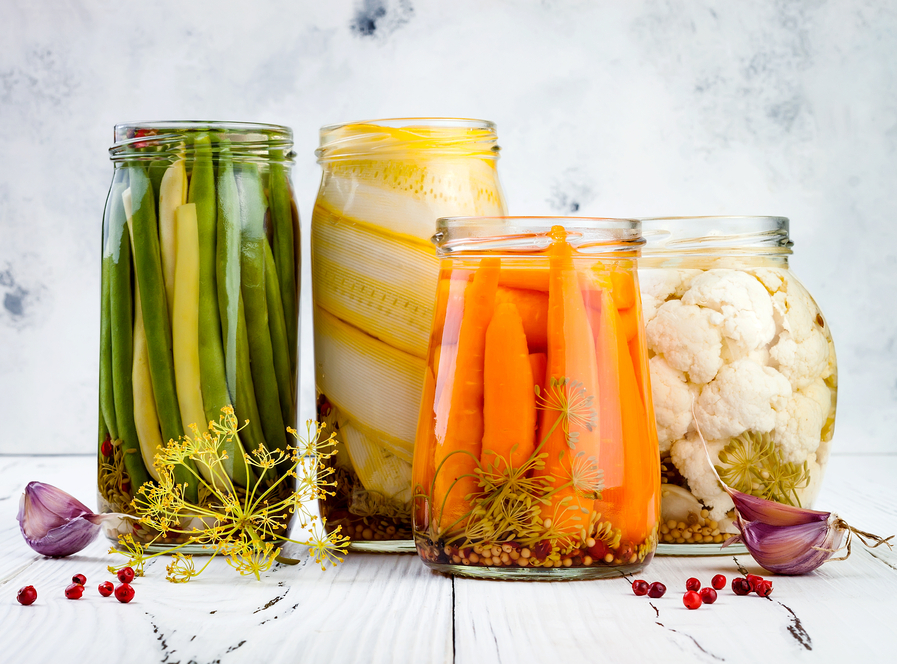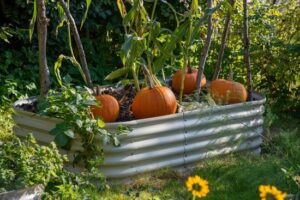
Introduction
In the world of gardening, resourcefulness and sustainability are key principles that guide gardeners in their quest for healthy and thriving plants. One unlikely yet surprisingly versatile resource that can be found in many households is pickle juice. This tangy liquid, often considered a byproduct of enjoying pickles, holds untapped potential for enhancing garden soil, controlling pests, fertilizing plants, and even aiding in seed starting. In this article, we’ll explore the various ways pickle juice can be utilized in the garden, highlighting its benefits and considerations for application
Soil Amendment
Introduction to Soil pH
Soil pH plays a crucial role in plant health and growth, as it affects nutrient availability and microbial activity in the soil. The pH scale ranges from 0 to 14, with a pH of 7 considered neutral. Soils with a pH below 7 are acidic, while soils with a pH above 7 are alkaline. Most plants prefer slightly acidic to neutral soil conditions for optimal growth, although there are exceptions.
Using Pickle Juice to Adjust Soil pH
Pickle juice can be used as a natural way to adjust soil pH, especially in soils that are too alkaline for certain plants. The acidity of pickle juice can help lower the pH of alkaline soils, making them more suitable for acid-loving plants such as azaleas, rhododendrons, and blueberries. Dilute pickle juice with water before applying it to the soil to avoid over-acidification and potential harm to plants.
Benefits of Using Pickle Juice as a Soil Amendment
Using pickle juice as a soil amendment offers several benefits for gardeners. Firstly, it provides a cost-effective alternative to commercial pH-adjusting products, saving money and reducing waste. Additionally, incorporating pickle juice into the garden promotes sustainable recycling of food waste, contributing to eco-friendly gardening practices.
Pest Control
Common Garden Pests and Their Impact
Garden pests such as insects, slugs, snails, and fungal diseases can wreak havoc on plants, causing damage to leaves, stems, flowers, and fruits. Left unchecked, pest infestations can weaken plants and reduce yields, compromising the overall health and productivity of the garden.
Utilizing Pickle Juice as a Natural Pest Deterrent
Pickle juice can serve as a natural deterrent against garden pests due to its acidity and strong odor. Spraying diluted pickle juice on plant foliage or applying it around the base of plants can help repel pests and prevent damage. However, it’s essential to exercise caution and avoid direct contact with plant tissues, as excessive acidity can harm plant tissues.
Environmental Considerations and Precautions
While pickle juice can be effective in deterring pests, it’s important to consider its potential impact on the environment and beneficial insects. Avoid using concentrated pickle juice near pollinator-attracting plants or areas where beneficial insects such as bees and ladybugs are present. Dilute pickle juice with water to minimize its environmental impact and apply it judiciously to target specific pest infestations.
Plant Fertilization
Nutritional Requirements of Plants
Plants require essential nutrients such as nitrogen, phosphorus, potassium, and micronutrients for healthy growth and development. These nutrients play vital roles in processes such as photosynthesis, root development, flowering, and fruit set. While soil naturally contains some nutrients, fertilizers are often used to supplement nutrient deficiencies and promote vigorous plant growth.
Incorporating Pickle Juice as a Fertilizer
Pickle juice contains trace amounts of nutrients such as potassium, calcium, and magnesium, making it a potential source of plant nutrition. As a liquid fertilizer, pickle juice can be applied directly to the soil or foliage of plants to provide supplementary nutrients. Dilute pickle juice with water to avoid over-fertilization and monitor plant response to ensure balanced nutrient uptake.
Maximizing the Benefits of Pickle Juice as a Fertilizer
To maximize the benefits of pickle juice as a fertilizer, consider complementary use with other fertilizers and soil amendments. Test soil nutrient levels regularly and adjust fertilization practices accordingly to meet the specific needs of plants. Monitor plant health and growth to determine the effectiveness of pickle juice as a fertilizer and make adjustments as needed to promote optimal plant nutrition and productivity.
Seed Starting and Germination
Importance of Proper Seed Starting Techniques
Successful seed starting is essential for ensuring strong and healthy seedlings that can thrive when transplanted into the garden. Proper seed starting techniques involve providing optimal soil moisture, temperature, and light conditions to promote seed germination and early growth. Challenges such as damping-off, poor germination rates, and weak seedlings can occur if seed starting conditions are not carefully managed.
Using Pickle Juice to Enhance Seed Germination
Pickle juice can be used to enhance seed germination and seedling development due to its acidity and nutrient content. Soaking seeds in a diluted pickle juice solution before planting can help soften seed coats, stimulate germination, and provide a nutrient boost to young seedlings. However, it’s essential to dilute pickle juice adequately to avoid damaging delicate seeds and seedlings.
Precautions and Considerations for Seed Starting with Pickle Juice
When using pickle juice for seed starting, it’s important to exercise caution and follow proper dilution ratios to prevent seed and seedling damage. Start with a low concentration of pickle juice and gradually increase the strength as needed based on plant response. Additionally, consider alternatives such as compost tea or commercial seed-starting mixes for sensitive plant species that may be more susceptible to acidity.



